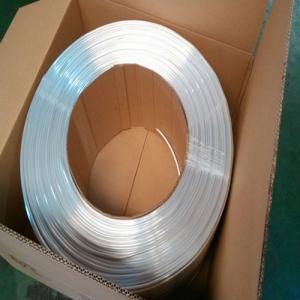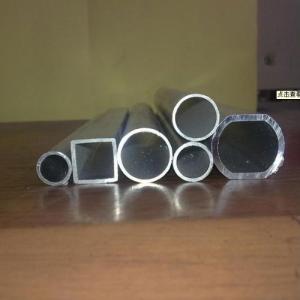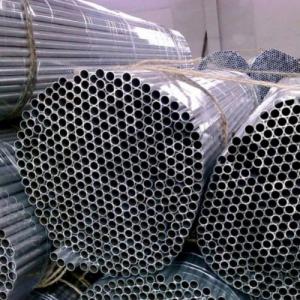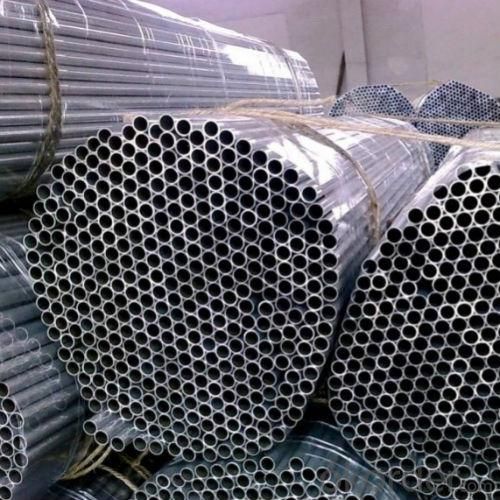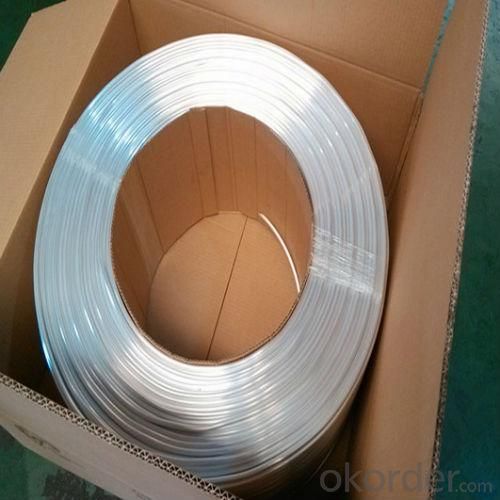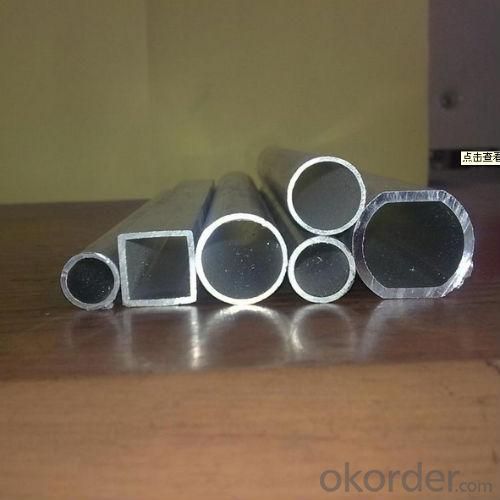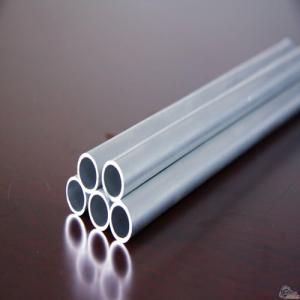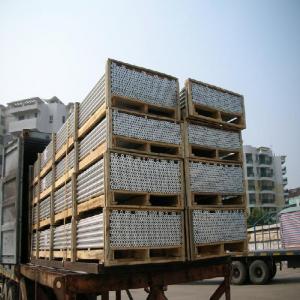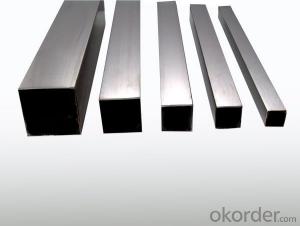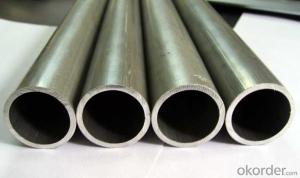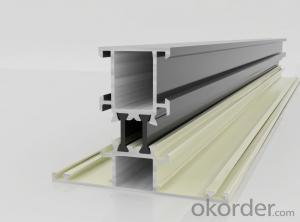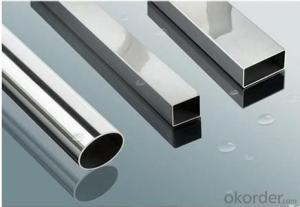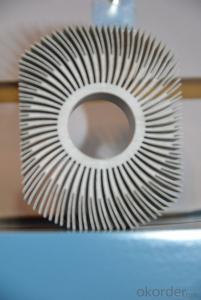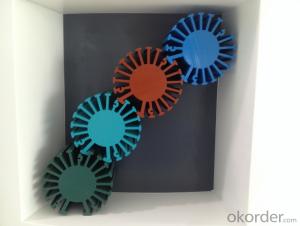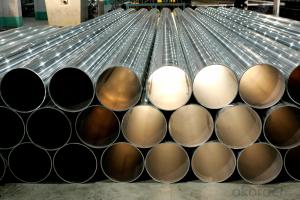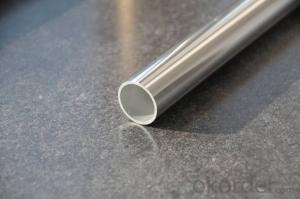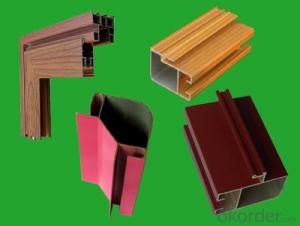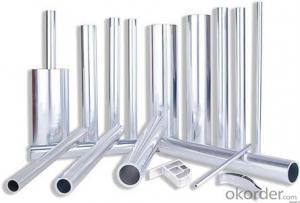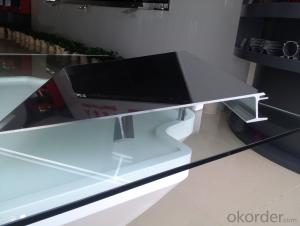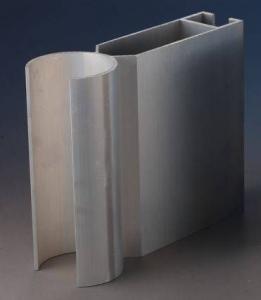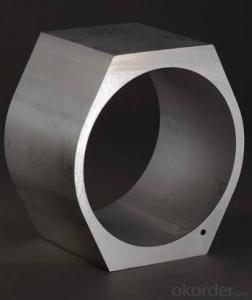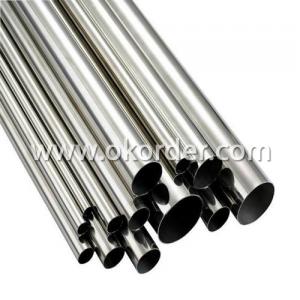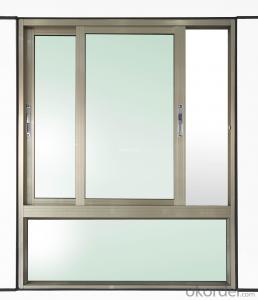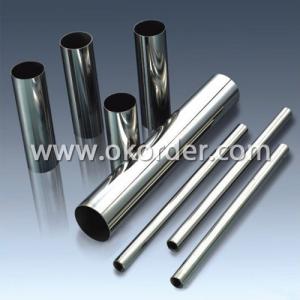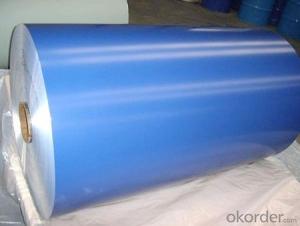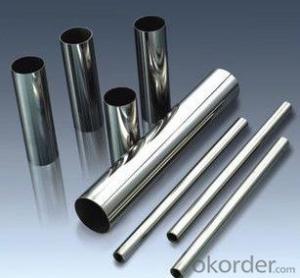Aluminum Capillary Pipes
- Loading Port:
- China Main Port
- Payment Terms:
- TT or LC
- Min Order Qty:
- 20 Tons m.t.
- Supply Capability:
- 1000 Tons Per Month m.t./month
OKorder Service Pledge
OKorder Financial Service
You Might Also Like
aluminum capillary pipe
1.Specifications of aluminum capillary pipe
1.Alloy:1050,3003,5052,5083,6005,6013,6061,6063,6082 etc.
2.Temper: O,F, H112,T4,T5,T6,T3 and T8
2.Diameter:6-350 mm
3.wall thickness: 0.5 -30 mm
4)Length: per customer's request
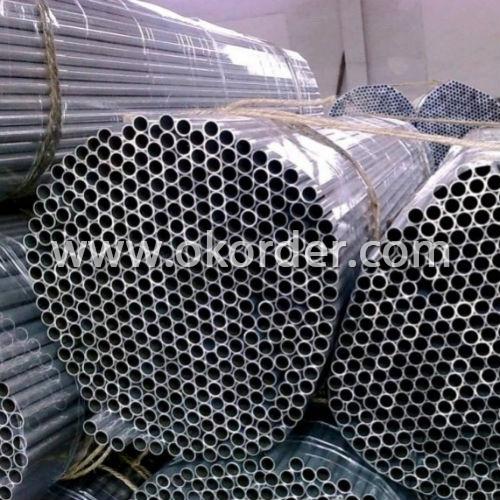
2.Features of aluminum capillary pipe
1)Anodizing
2)Electrophoresis
3)Polishing
4)Coating film
5)Powder coating
6)Wooden texture
etc.
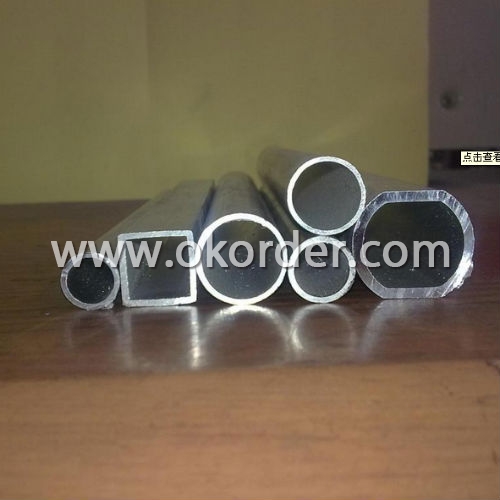
3.Application of aluminum capillary pipe
refrigerator and air condition
4.Packaging & Delivery of aluminum capillary pipe
Packaging | Standard export seaworthy package of aluminum capillary tube (or by the customer's request)
|
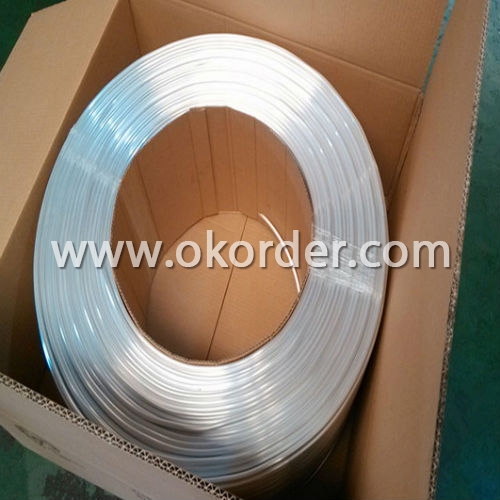
5.Process of aluminum capillary pipe
heat extrusion, welding, seamless etc.
- Q: What are the common applications of aluminum pipes?
- Aluminum pipes have a wide range of applications across various industries. One of the most common applications of aluminum pipes is in the construction industry. Aluminum pipes are often used for plumbing, heating, and ventilation systems due to their lightweight nature, corrosion resistance, and ability to withstand high temperatures. In the automotive industry, aluminum pipes are commonly used for air intake systems, turbo intercoolers, and radiator systems. The lightweight nature of aluminum pipes helps improve fuel efficiency and overall performance of vehicles. Aluminum pipes also find extensive use in the manufacturing of furniture, particularly for outdoor use. The corrosion resistance of aluminum makes it an ideal choice for outdoor furniture as it can withstand exposure to harsh weather conditions without deteriorating. In the aerospace industry, aluminum pipes are used for various applications, including aircraft structural components, fuel lines, and hydraulic systems. The lightweight nature and high strength-to-weight ratio of aluminum pipes make them suitable for these critical applications. Furthermore, aluminum pipes are extensively used in the marine industry for applications such as boat and shipbuilding, as well as offshore structures. The corrosion resistance of aluminum ensures durability and longevity in marine environments. Overall, the common applications of aluminum pipes span across construction, automotive, furniture, aerospace, and marine industries. Their lightweight nature, corrosion resistance, and versatility make them a popular choice for various applications.
- Q: Are aluminum pipes suitable for wastewater treatment facilities?
- Indeed, wastewater treatment facilities can make effective use of aluminum pipes. Aluminum, being both durable and resistant to corrosion, proves to be an excellent option for various purposes, including wastewater treatment. Its suitability particularly shines in settings where pipes are exposed to the chemicals and corrosive substances commonly found in wastewater. Moreover, aluminum pipes possess the advantage of being lightweight, making installation and maintenance tasks a breeze. Additionally, due to its impressive strength-to-weight ratio, aluminum can endure substantial pressure and stress without jeopardizing its structural integrity. Consequently, when considering the advantages that aluminum pipes bring to wastewater treatment facilities, they undeniably qualify as a fitting choice for this particular application.
- Q: Are aluminum pipes suitable for irrigation systems?
- Yes, aluminum pipes are suitable for irrigation systems. Aluminum is a lightweight and durable material that is resistant to corrosion, making it an excellent choice for irrigation systems. It can withstand high water pressure and is less likely to crack or break compared to other materials such as PVC or steel pipes. Additionally, aluminum pipes offer flexibility and ease of installation, as they can be easily cut and connected. Moreover, aluminum pipes have a long lifespan and require minimal maintenance, making them a cost-effective option for irrigation systems. Overall, aluminum pipes are a reliable and efficient choice for irrigating agricultural fields, gardens, and landscapes.
- Q: Why aluminum tubes can not be used as lightning rod materials?
- It is not impossible, but uneconomical. The main reason is that the cost of aluminum pipe is higher than that of iron pipe.
- Q: Can aluminum pipes be used for airport terminals?
- Yes, aluminum pipes can be used for airport terminals. Aluminum is a popular material choice for various applications in airport terminals due to its numerous advantages. Firstly, aluminum is lightweight, which makes it easier to handle during construction and installation. This can lead to cost savings and faster project completion times. Additionally, aluminum pipes are corrosion-resistant, which is crucial in environments like airport terminals where exposure to moisture, humidity, and chemicals is common. This resistance to corrosion ensures the longevity and durability of the pipes, reducing maintenance and replacement costs in the long run. Another advantage of using aluminum pipes in airport terminals is their excellent thermal conductivity. Aluminum pipes can efficiently transfer heat, making them suitable for applications such as heating, ventilation, and air conditioning (HVAC) systems. This property can contribute to energy efficiency and cost savings for the terminal's operations. Furthermore, aluminum is a sustainable material as it is easily recyclable. This aligns with the increasing emphasis on environmental responsibility in modern construction practices. By using aluminum pipes, airport terminals can contribute to sustainable building practices and reduce their carbon footprint. In summary, aluminum pipes can be effectively used in airport terminals due to their lightweight nature, corrosion resistance, thermal conductivity, and sustainability. Considering these advantages, it is a suitable material choice for various applications within airport terminal infrastructure.
- Q: Is there any difference between the installation of air conditioning aluminum tube and copper tube?
- There is no difference, but very very very very very very attention attention, connected at two copper tubes, try not to force, in as far as possible to avoid bending, or welding technical requirements. Copper and aluminum with no end of trouble for the future is very high, the scene can not be solved.
- Q: Are aluminum pipes fire-resistant?
- Yes, aluminum pipes are generally considered to be fire-resistant. Aluminum has a high melting point of 660 degrees Celsius (1220 degrees Fahrenheit) and does not burn easily. Additionally, aluminum forms a protective oxide layer on its surface when exposed to oxygen, which helps prevent further combustion. These characteristics make aluminum pipes a suitable choice for applications that require fire resistance, such as in industrial settings or for the transport of flammable substances. However, it is important to note that while aluminum pipes may be fire-resistant, they can still transfer heat and conduct electricity, so proper precautions and insulation should be taken when using them in potentially hazardous environments.
- Q: Are aluminum pipes suitable for chemical processing plants?
- Yes, aluminum pipes can be suitable for chemical processing plants depending on the specific requirements and conditions of the plant. Aluminum pipes offer several advantages for chemical processing applications. Firstly, aluminum is lightweight, making it easier to handle and install compared to other materials such as steel. This can help reduce labor and transportation costs during installation. Additionally, aluminum pipes have good corrosion resistance properties, which is crucial in chemical processing plants where exposure to various corrosive chemicals is a common occurrence. Aluminum naturally forms a protective oxide layer on its surface, which helps prevent further corrosion and degradation. This oxide layer can be further enhanced through various surface treatments to improve the resistance to specific chemicals. Moreover, aluminum pipes have excellent thermal conductivity properties, allowing for efficient heat transfer in chemical processes that involve heating or cooling. This can contribute to energy savings and more efficient operations. However, it is important to note that aluminum pipes may not be suitable for all chemical processing applications. Aluminum can react with certain aggressive chemicals or extreme conditions, such as high temperatures or extreme pH levels. In such cases, alternative materials like stainless steel or specialty alloys may be more appropriate. Therefore, before using aluminum pipes in a chemical processing plant, it is essential to thoroughly evaluate the specific requirements, chemicals involved, operating conditions, and consult with experts or engineers to determine their suitability and any necessary precautions or limitations.
- Q: Are aluminum pipes suitable for architectural purposes?
- Yes, aluminum pipes are highly suitable for architectural purposes. Aluminum is a versatile and lightweight material that offers numerous advantages for architectural applications. Firstly, aluminum pipes have excellent corrosion resistance, making them ideal for outdoor structures that are exposed to varying weather conditions. They are resistant to rust and other forms of degradation, ensuring durability and longevity of the architectural design. Secondly, aluminum pipes can be easily fabricated and customized to meet specific architectural requirements. The material can be easily shaped, welded, and joined, allowing for the creation of intricate and complex designs. This flexibility enables architects to explore creative possibilities and achieve unique architectural aesthetics. Additionally, aluminum pipes have a high strength-to-weight ratio, meaning they are strong and sturdy while remaining lightweight. This makes them easier to transport, install, and maintain. The lightweight nature of aluminum also reduces the load on the overall structure, resulting in cost savings in construction materials. Moreover, aluminum pipes are recyclable, making them an environmentally friendly choice for architectural purposes. The material can be recycled repeatedly without losing its properties, reducing waste and minimizing the environmental impact of construction projects. Lastly, aluminum pipes offer a wide range of finishes and colors, allowing architects to achieve the desired appearance and aesthetic appeal. They can be anodized or coated, providing additional protection against corrosion and enhancing the overall visual appeal of the architectural design. In conclusion, aluminum pipes are highly suitable for architectural purposes due to their corrosion resistance, versatility, strength, lightweight nature, recyclability, and aesthetic options. These qualities make aluminum pipes an excellent choice for a wide range of architectural applications, from structural support to decorative elements.
- Q: What are the insulation requirements for aluminum pipes in cold climates?
- In cold climates, aluminum pipes should have insulation with a minimum R-value of 6 to prevent heat loss and condensation. The insulation should be properly installed and sealed to ensure maximum efficiency and protection against freezing temperatures.
1. Manufacturer Overview
| Location | Guangdong, China |
| Year Established | 2006 |
| Annual Output Value | Above US$50 Million |
| Main Markets | Mid East;Eastern Europe;North America |
| Company Certifications | ISO 9001:2000;ISO 14001:2004;OHSAS 18001 |
2. Manufacturer Certificates
| a) Certification Name | |
| Range | |
| Reference | |
| Validity Period |
3. Manufacturer Capability
| a) Trade Capacity | |
| Nearest Port | Nanhai Port |
| Export Percentage | 30%-50% |
| No.of Employees in Trade Department | 21-50 People |
| Language Spoken: | English;Chinese |
| b) Factory Information | |
| Factory Size: | Above 100,000 square meters |
| No. of Production Lines | Above 10 |
| Contract Manufacturing | OEM Service Offered;Design Service Offered |
| Product Price Range | Average |
Send your message to us
Aluminum Capillary Pipes
- Loading Port:
- China Main Port
- Payment Terms:
- TT or LC
- Min Order Qty:
- 20 Tons m.t.
- Supply Capability:
- 1000 Tons Per Month m.t./month
OKorder Service Pledge
OKorder Financial Service
Similar products
Hot products
Hot Searches
Related keywords
